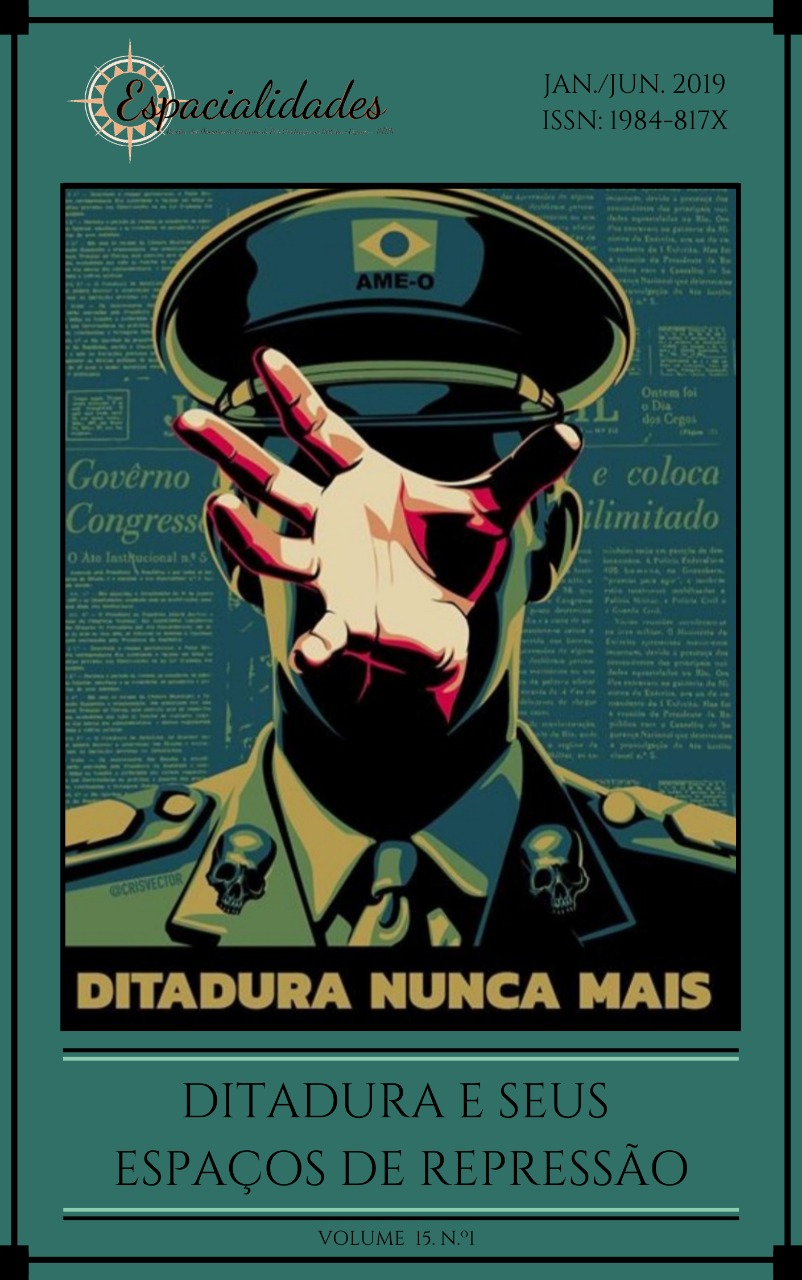Pobreza e perdas territoriais na obra Machombongo, de Euclides da Cunha
DOI:
https://doi.org/10.21680/1984-817X.2019v15n01ID19192Resumo
Este artigo tem como objetivo analisar as perdas territoriais e a pobreza que as personagens trabalhadoras rurais sofriam no período em que, ocorria no Brasil, o Golpe de 1964, representado na obra Machombongo (2014), de Euclides Neto. A fazenda era o local onde os trabalhadores sofriam com a miséria, resultado da perda da moradia, do salário aviltante, da escravização dos homens livres (trabalhadores) e do silenciamento. Para uma melhor compreensão buscamos apoio teórico em Maria Moura (1978), sobre as relações de poder entre o fazendeiro e os agregados e Deleuze e Guattari (1995), para compreendemos o processo de desterritorialização que os trabalhadores rurais sofriam. A metodologia baseia-se na pesquisa bibliográfica e na análise da obra em questão.
PALAVRAS-CHAVE: Pobreza – Desterritorialização – Machombongo.
Downloads
Arquivos adicionais
Publicado
Como Citar
Edição
Seção
Licença
A submissão de originais para este periódico implica na transferência, pelos autores, dos direitos de publicação impressa e digital. Os autores mantém os direitos autorais e concedem à revista o direito de publicação inicial, com o trabalho simultaneamente licenciado sob a Licença Creative Commons CC BY-NC- SA 4.0, e pelos direitos de publicação. Os autores podem publicar seus trabalhos on-line em repositórios institucionais / disciplinares ou nos seus próprios sites. Os autores somente poderão utilizar os mesmos resultados em outras publicações indicando claramente este periódico como o meio da publicação original.
O autor também aceita submeter o trabalho às normas de publicação da Revista Espacialidades acima explicitadas.
A Revista Espacialidades é um periódico de acesso aberto sob a licença Creative Commons Attribution-NonCommercial-ShareAlike 4.0 Internacional License (CC BY-NC-SA 4.0)




